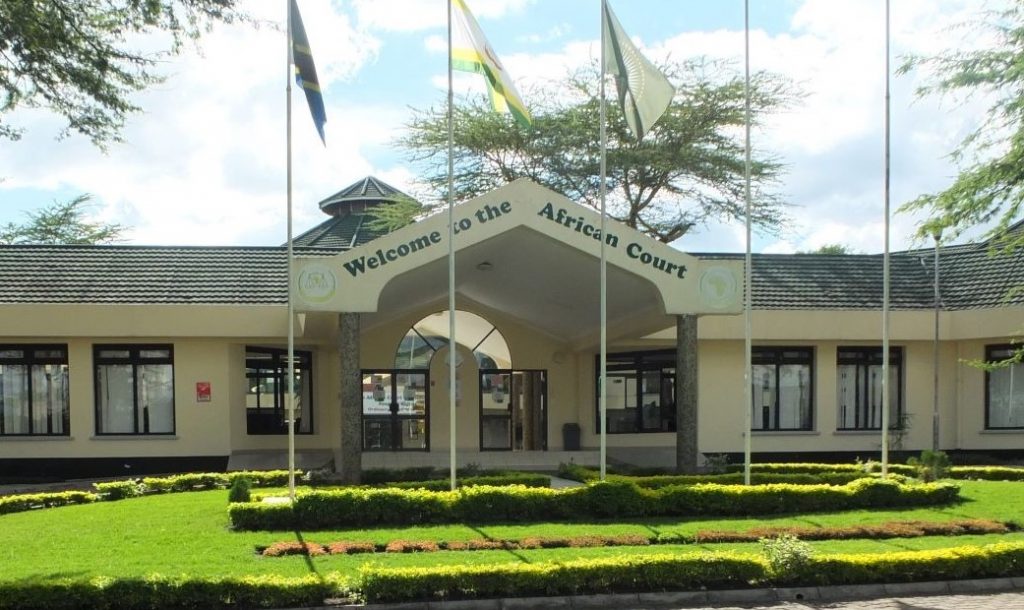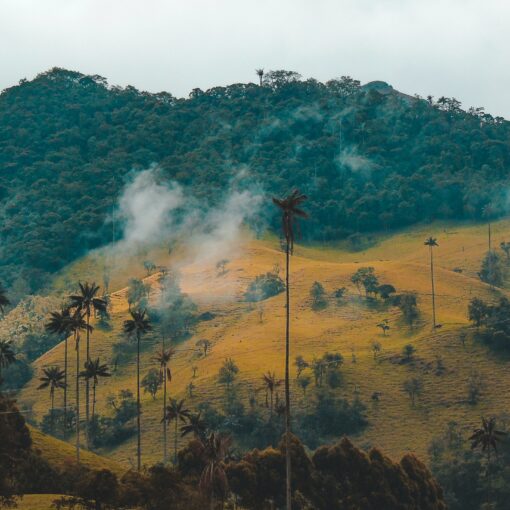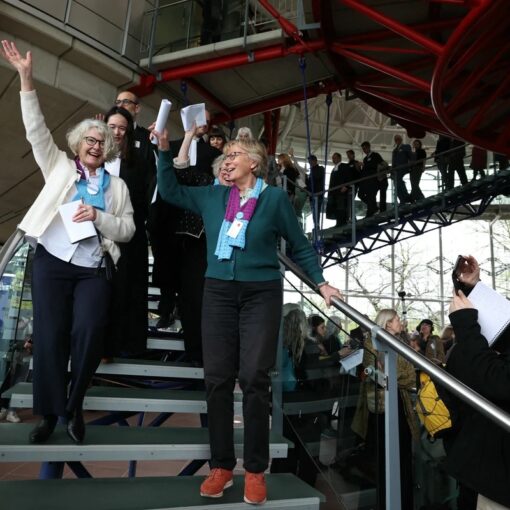Maria Antonia Tigre and Susan Ann Samuel
On May 2, 2025, a coalition of non-governmental organizations (NGOs), headed by the Pan African Lawyers Union (PALU), and in collaboration with the African Climate Platform, Resilient40, Natural Justice, and Environmental Lawyer Collective for Africa, submitted a petition to the African Court on Human and Peoples’ Rights (AfCHPR) requesting an Advisory Opinion on the human rights obligations of African States in the context of climate change (see Request for an advisory opinion on the human rights obligations of African states in addressing the climate crisis). The request follows similar initiatives at the International Tribunal for the Law of the Seas (ITLOS, see here and here), the International Court of Justice (ICJ, see here and here), and the Inter-American Court of Human Rights (IACtHR, see here). The petition details Africa’s vulnerability to the climate crisis, and the historical inequities, such as colonialism, that have contributed to it. This blog post details the central questions in the petition and its context.
The Role of Advisory Opinions at the AfCHPR
The AfCHPR has jurisdiction over suits that demand the interpretation and application of the African Charter on Human and Peoples’ Rights (African Charter), and the Protocol establishing the AfCHPR. Under Article 4(1) of the Protocol to the African Charter (i.e, the AFCHPR) and Rule 82 of the Court’s Rules, the Court has advisory jurisdiction on legal matters concerning the provisions of the Charter, and “any other international human rights instrument in respect of which the advisory opinion is being sought,” provided the subject matter shall not relate to a Communication pending before the Commission.
The request for an Advisory Opinion addresses critical legal obligations relating to the human rights obligations of African States to protect the rights of citizens in the context of the climate crisis. While 54 (out of 55) African states have already ratified the African Charter, only 34 have ratified the Protocol establishing the AFCHPR. Consequently, while this Advisory Opinion is not formally recognized by 20 states, it could nonetheless set normative standards that influence non-ratifying states, allowing legal norms to gradually filter down. This normative pressure may catalyze climate justice advancement across the continent, potentially compelling broader institutional engagement with climate obligations irrespective of formal ratification status.
Content of the Request
Defining climate change as a threat multiplier, the petition details significant climate impacts throughout each major sub-region in the African continent—North, East, Southern, West, and Central Africa. These include water scarcity, droughts, flooding, rising temperatures, heatwaves, internal displacement and migration, food insecurity, agricultural disruptions, pest outbreaks, inter-communal and violent conflicts, storm surges, coastal erosion, sea level rise, desertification, increased waterborne diseases and malaria outbreaks, energy insecurity, countries’ debt distress, and strains to political instability.
Similar to the advisory opinion request to the IACtHR, the request submitted to the AfCHPR details how climate change worsens existing inequalities, disproportionately impacting women, children, persons with disabilities, the elderly, Indigenous groups, environmental human rights defenders, and victims of natural disasters. Given the existential human rights challenge posed by climate change, the petition asks the Court to outline rights-based approaches and recommendations for States “to arrest and reverse the negative impacts of the climate crisis.”
Grounded in the African Charter the petition seeks the Court’s interpretation of States’ climate obligations under key regional legal instruments, including the Maputo Protocol, the Kampala Convention for the Protection and Assistance of Internally Displaced Persons in Africa, the African Charter on the Rights and Welfare of the Child, and the Revised African Convention on Conservation of Nature. Significantly, the request invites the Court to also consider the United Nations Framework Convention on Climate Change, the Kyoto Protocol, the Paris Agreement, the United Nations Convention on Combating Desertification, the United Nations Convention on Biological Diversity, and other relevant international instruments.
The request notes that, as a result of the climate crisis, several human rights are affected, including the right to life (art. 4, African Charter), the right to health (art. 16, African Charter), the right to economic, social, and cultural development (art. 21, 22, 24, African Charter), the right to a satisfactory environment conducive to development (art. 24, African Charter), the right to education (art. 17, African Charter), the right to freedom from discrimination (art. 18(3), African Charter), the right to protection of family and social welfare (art. 18(1), African Charter), the right to peace and security (art. 23, African Charter), the right to food, the right to a healthy environment (art. 24, African Charter), the rights of women and girls, and the rights of Indigenous communities. It further grounds the request on case law before the AfCHPR recognizing States’ obligations to respect, protect, promote, and implement the rights enshrined in international law.
Therefore, the request invites the AfCHPR to answer the following preliminary questions:
- whether the AfCHPR can determine the human rights obligations of African States under the African Charter and other relevant treaties in the context of climate change; and
- whether the AfCHPR can interpret customary and treaty law obligations and duties of African States in the context of climate change.
If the AfCHPR agrees that African States have climate-related human rights obligations, the petitioners ask it to answer the following:
- Do States have specific duties under the African Charter to protect the rights of past (ancestral rights), present, and future generations from the harmful effects of climate change?
- Do African States have a duty to protect vulnerable groups—like Indigenous peoples, environmental defenders, women, children, youth, the elderly, people with disabilities, and past, present, and future generations—from climate impacts, based on the Charter and other treaties?
- Do States have human rights obligations to ensure that the transition to a green economy is just, transparent, equitable, and accountable?
- What responsibilities do States have when taking climate actions like adaptation, mitigation, and resilience building?
- Are States required to provide compensation or reparations for loss and damage caused by climate change?
- What duties do African States have to regulate or hold accountable third parties—like multinational corporations or other non-state actors operating on the continent—so that they follow climate and human rights laws?
- Do States have an obligation to cooperate with other countries, especially those most responsible for emissions, to keep global warming below 1.5°C and protect current and future generations in Africa?
The questions raised in the advisory opinion request are expansive in scope and legal significance. They cover critical themes such as the obligation of African States to protect the rights of vulnerable populations, implement effective climate mitigation and adaptation measure, ensure access to remedies and reparations for loss and damage, and promote a just and equitable transition to a low-carbon economy. Importantly, the request challenges the Court to address not only the internal obligations of African States under the African Charter and related regional instruments but also their extraterritorial and diplomatic responsibilities in the broader global climate regime. While the Court does not have jurisdiction over non-African States, the petition nonetheless underscores the duty of African States to advocate internationally—particularly in climate negotiations—for more ambitious emissions reductions from historical emitters, the mobilization of adequate climate finance, and equitable frameworks for adaptation, resilience, and just transition, and asks the Court to reflect on these obligations (paras. 144–145).
Additionally, the request seeks guidance on the right of African States to seek compensation from high-emitting countries for loss and damage linked to climate change. This includes claims for the costs of adaptation, infrastructure damage, environmental degradation, loss of livelihoods, and other harms disproportionately borne by African nations (para. 146). For individuals and communities affected, the petition also calls on the Court to consider the human rights dimensions of reparations—such as the right to reclaim land, resources, and property lost due to climate impacts, and the right to fair compensation in cases of spoliation or wrongful dispossession.
The petition further invites the AfCHPR to clarify whether African States have an obligation to demand that the global temperature rise be kept below 1.5°C, as part of their broader duty to protect current and future generations from irreversible harm. It builds on emerging international jurisprudence and parallel claims on advisory opinions related to climate change, including the recent advisory opinion by the ITLOS, which affirmed a duty of care grounded in customary international law. This includes the reciprocal responsibility of States not to cause environmental damage to other States or areas beyond national jurisdiction, as well as the obligation to adopt proactive measures to prevent foreseeable harm. Framed within this evolving legal landscape, the request urges the Court to articulate a principled vision of African States’ responsibilities to confront the climate crisis—one rooted in care, justice, and the intergenerational protection of human rights.
Complementarity with Other International Forums
As regional human rights courts, the IACtHR and AfCHPR approach climate issues primarily through an international human rights framework, complementing the ICJ’s approach, which also relies significantly on human rights. This multilayered approach to approaching different courts primarily roots the climate justice narrative through a human rights perspective across international, regional, and local contexts. In addition, the multiple actors that participate across advisory proceedings, including the United Nations, International Conservation for Human Rights, Commission of Small Island States on Climate Change and International Law (COSIS), the African Union, and more submit written statements to multiple court—where overlapping themes reinforces the courts’ complementarity (for ITLOS, see here; for the IACtHR, see here, for the ICJ, see here, here, and here).
The request for the AfCHPR’s Advisory Opinion reflects the increasing momentum of climate litigation globally. It forms part of an unprecedented “quartet” of parallel requests before international courts (ICJ, ITLOS, IACtHR, AfCHPR, see here). These opinions will not be issued simultaneously. ITLOS released its opinion on May 21, 2024, while the IACtHR is expected to issue its opinion in the second half of 2025, and the ICJ towards the second half of 2025. This sequential issuance creates opportunities for courts (or at least those issuing decisions later) to “adjust and incorporate the views expressed in prior opinion(s).”
Moreover, the open-ended jurisdictional language of both the IACtHR and AfCHPR as regional courts creates an ideal scenario for judicial dialogue where courts can “exchange experiences, knowledge and best practices.” For instance, formal and informal meetings between courts facilitate this dialogue. In May 2023, a Dialogue among Regional Human Rights Courts occurred in San José, Costa Rica, bringing together judges from the IACtHR, AfCHPR, and European Court of Human Rights (ECtHR) to discuss challenges in climate change litigation. The resulting San José Declaration (II) recognized the importance of strengthening coordination and enhancing dialogue between regional human rights courts, in light of the Kampala Declaration signed on October 29, 2019.
Next Steps
Once an advisory opinion request is submitted to the AfCHPR, the Court registers the request and conducts a preliminary examination to ensure it meets admissibility criteria, including whether the requesting entity is authorized under Article 4(1) of the Court’s Protocol and whether the legal questions fall within the Court’s mandate. If admissible, the Court notifies African Union Member States, the African Commission on Human and Peoples’ Rights, the African Union Commission, and other relevant stakeholders, inviting them to submit written observations. The Court may also hold a public hearing before proceeding to deliberate in private (see Rules of Court, Rules 82-86). The final advisory opinion is adopted by a majority of the judges and issued in writing. Although advisory opinions are not binding, they carry significant interpretive weight across the African continent.
The timeline for issuing an advisory opinion varies depending on the complexity of the request and the volume of submissions, but the process typically takes 6 to 18 months from the date of filing to final publication. Considering that the other advisory opinion requests were delayed due to the complexity of the issue and the unprecedented participation of stakeholders in the written and oral phases, it is likely that it might take longer.







